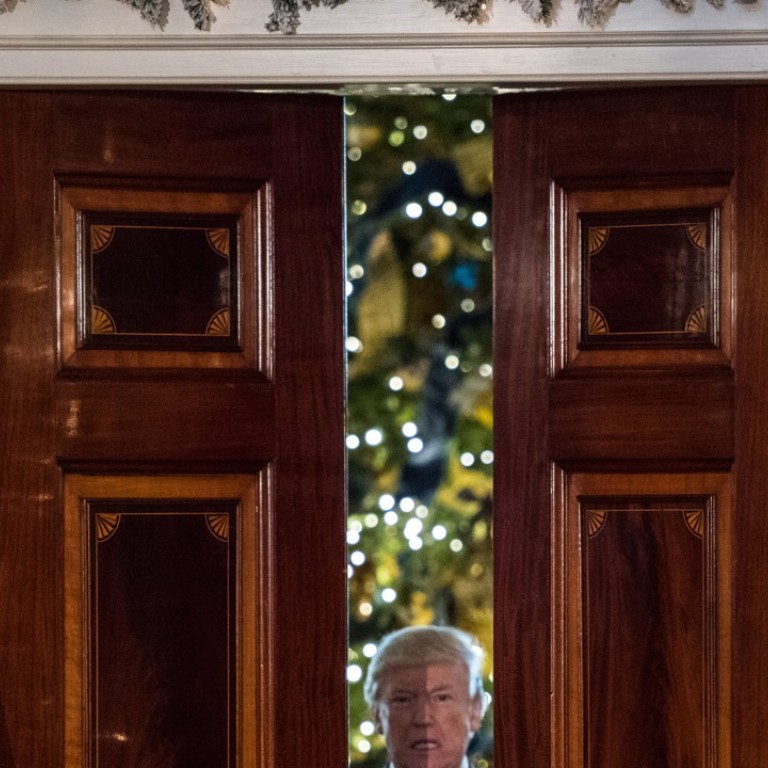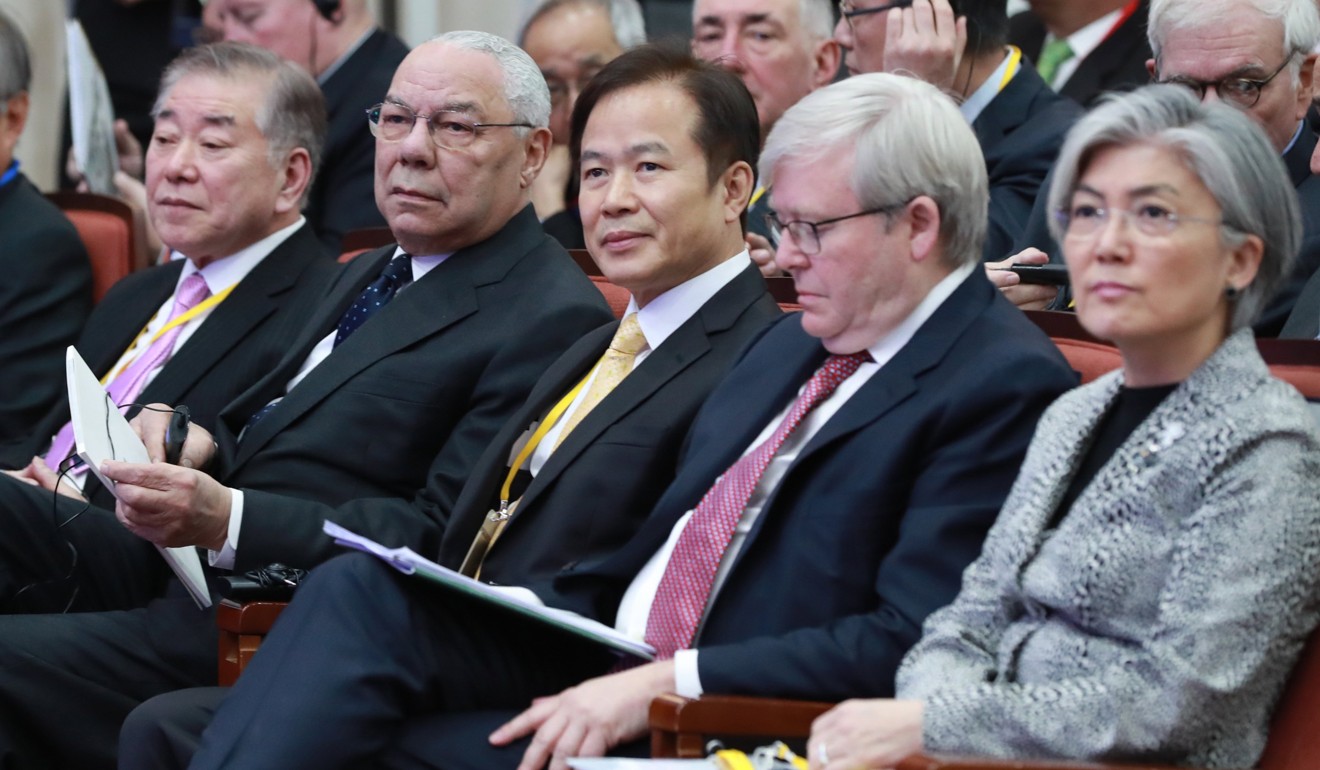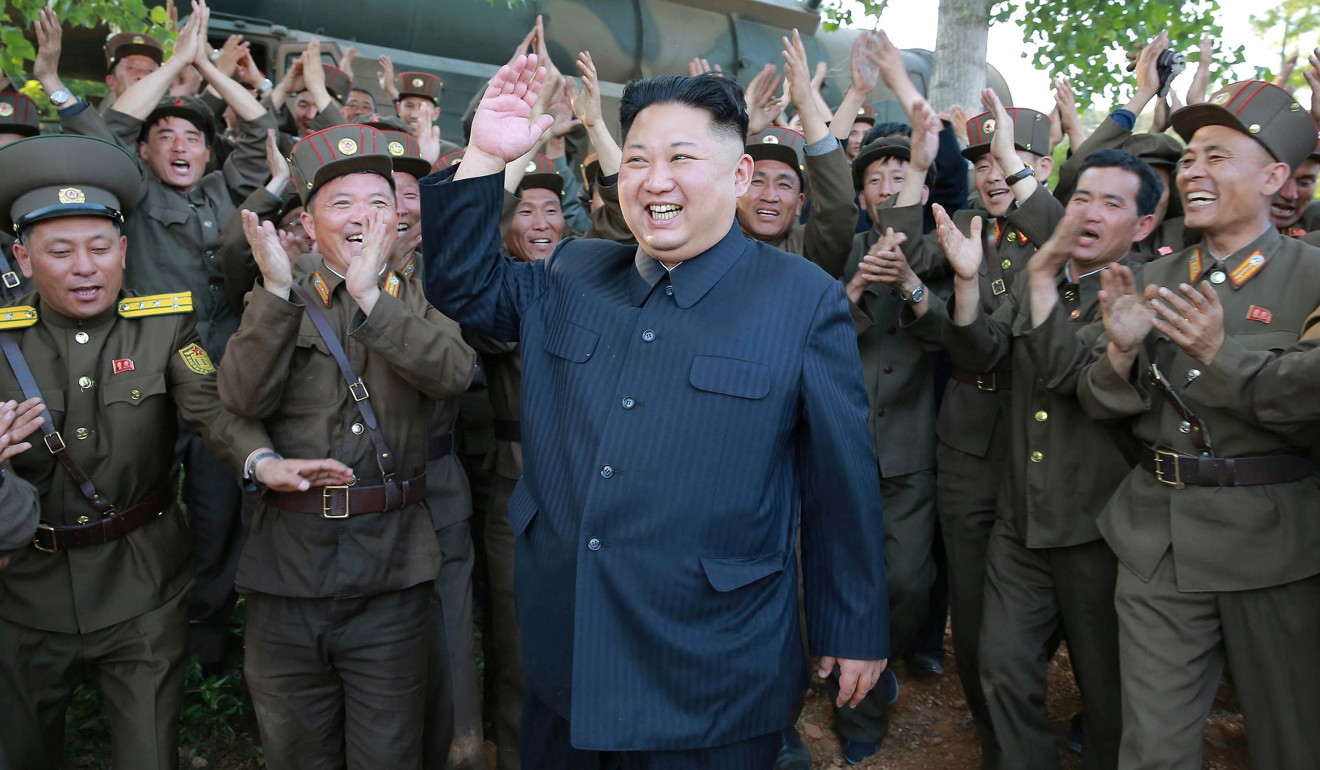
Donald Trump the ‘greatest source of instability’ in Asia, says Australia’s former PM Kevin Rudd
Meanwhile, United Nations chief Antonio Guterres on Thursday warned the world against ‘sleepwalking into war’ over North Korea
US President Donald Trump “is the greatest source of instability” in Asia, Australia’s former prime minister Kevin Rudd said in a panel discussion that mostly excoriated Trump’s administration for policy missteps that have damaged US relations with China and its allies in the region.
“The President of the United States is the greatest source of instability across the Asia Pacific region because no one knows which way he’s going to jump,” said Rudd, now president of the Asia Society Policy Institute in New York, where the discussion took place.
Rudd singled out “the chaotic nature of the administration’s policy” on North Korea.
“We’ve now had two iterations of [Secretary of State Rex] Tillerson being countermanded by the Commander in Chief Donald Trump on his diplomatic initiatives,” first via Twitter in October, after Tillerson held talks in Beijing about efforts to halt North Korea’s nuclear weapons programme.
In that tweet, Trump said Tillerson’s efforts to negotiate with China on the subject were “a waste of time”.
Meanwhile, United Nations chief Antonio Guterres on Thursday warned the world against “sleepwalking into war” over North Korea, as he called for diplomatic efforts to banish nuclear weapons from the Korean peninsula.
Speaking on a visit to Japan, Guterres said: “The worst possible thing that could happen would be for us all to sleepwalk into a war that might have very dramatic circumstances.”
Watch: a war of words between Trump and Kim
The UN Security Council has imposed three rounds of sanctions over the past year against North Korea over its increasingly powerful missile and nuclear tests.
Guterres said those sanctions need to be implemented “by North Korea first of all, but also fully implemented by all the other countries whose role is crucial”.
Tillerson said a day earlier that the United States was “ready to talk anytime North Korea would like to talk,” which appeared to step back from a US demand that Pyongyang first accept that any negotiations would hinge on the country agreeing to give up its nuclear arsenal.

Other members of the panel focused on the Trump administration’s lack of a clear trade strategy in Asia, and apparent willingness to start a trade war with China.
Trump “is about to engage in a very interesting and risky experiment, which is to take a series of unilateral trade actions against the Chinese and see how far they can push them in order to bring about big changes in the way they manage access to their market”, said Evan Medeiros Managing Director of Asia at the Eurasia Group.
“It’s basically going to be a game of chicken. Who can tolerate more pain before some kind of deal can be reached It’s going to be a very bumpy road so everyone should put their seat belts on,” added Medeiros, who served as special assistant to former president Barack Obama and then-senior director for Asian affairs at the White House’s National Security Council (NSC).
Trump this year ordered his Commerce Secretary Wilbur Ross to initiate multiple investigations targeting China, moves some trade officials and analysts have said threaten to destabilise Sino-US close economic and cultural ties, which have underpinned security for the Asia-Pacific region for decades.
“We are looking a the potential for a dangerous diversion of deep Chinese and American economic and security interests, driven by the bilateral economic agenda and driven by radically different positions on North Korea,” Rudd told the South China Morning Post after the discussion, when asked about his discussions with Chinese policy advisers on a recent trip to Beijing.
Friction with US allies in the region is also expected to increase, according to members of the panel discussion.

Trump signed an executive order withdrawing the US from TPP on his first day in office, following through on a campaign pledge he said would help stem US job losses. While the US leader has criticised Washington’s involvement in multilateral trade agreements, he has also caused friction with allies in Asia over bilateral trade arrangements.
“Absolutely there’s a trust deficit between the US and South Korea, and I think it’s an American self-imposed one. It begins with the KORUS FTA,” Medieros said, referring to the US-Korea Free Trade Agreement.
“For an administration that walks away from multilateral trade and says we want to do bilateral free-trade agreements and then threatens withdrawal from the highest-standard bilateral free-trade agreement with an ally in the middle of a security crisis. Unpack that for me and explain what the strategy is. This does not do a lot for your standing in the world.”
Additional reporting by Agence France-Presse

